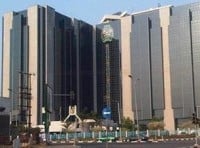
NIGERIA LEADS THE AFRICAN REVOLUTION

As the African Decade draws to a close, there is a very clear new regional economic leader, and it's not South Africa
- Dateline
- 16 December 2019
Africa, the dark continent of the past, has enjoyed a decade of growth and prosperity, due in no small part to the resource-hungry giants of the East. China and India, in particular, have courted African countries with offers of partnership bordering on economic colonization. Africa has emerged the stronger for this trade and investment.
One country stands out as a leader – Nigeria. Although beset by challenges in governance, ethics and infrastructure, Nigeria had several factors going for it: Widespread use of English, a stable democratic capitalist economy, and oil. But it was the enthusiastic adoption of information and communication technologies that leapfrogged Nigeria into the number one spot.
South Africa dominated the continent economically for a century at least, and once South Africa became a true democracy it seemed that its regional leadership was assured.
However, several successive terms by compromised leaders conspired to thwart that dream, and grassroots problems like education, health, crime and poverty continued to bedevil the nation, even as the new elite joined the ranks of the global high-fliers. The rainbow nation was somewhat tarnished, not least by corruption, greed and pandering to populist policies that stunted growth.
Nigeria’s leadership climb began in earnest when corruption got its marching orders. Under president Goodluck Jonathan, Nigeria responded to ‘tough love’ – more rigorous economic policies and no tolerance for corruption that could undermine the economic opportunities that globalization offered.
Dictators and former strongmen in Africa’s orbit were equally sanctioned. Nigeria was first among the African powers to recognize the Libyan rebels as the legitimate successors to Gaddafi, despite reticence from South Africa’s Zuma.
The launch of Nigeria’s own communication satellites in 2011 was more than symbolic. Together with high capacity submarine cables that landed earlier in the year, Nigeria was joining the league of connected nations, even as Kenya steam-rollered onto the international broadband scene. Wireless telecoms had already grown exponentially since inception in Nigeria, and cheap, high-speed broadband for the masses accelerated the boom.
Now Nigeria, with its large, educated and connected population, can deservedly accept the title of leading economy in Africa, while South Africa looks on aghast, thinking: “Where did we go wrong?”
Links to related stories
- Nigeria Recognizes Libya Rebels - Voice of America, 23 August 2011
- Nigerian govt unveils 8 priority areas to transform economy - Afrique en ligne, 30 August 2011
- Indian business delegation to tap Africa's IT market - Economic Times, 30 August 2011
- Comparing Nigeria to South Africa - Pikimal.com
- Nigeria launches two satellites - BBC News, 17 August 2011
Warning: Hazardous thinking at work
Despite appearances to the contrary, Futureworld cannot and does not predict the future. Our Mindbullets scenarios are fictitious and designed purely to explore possible futures, challenge and stimulate strategic thinking. Use these at your own risk. Any reference to actual people, entities or events is entirely allegorical. Copyright Futureworld International Limited. Reproduction or distribution permitted only with recognition of Copyright and the inclusion of this disclaimer.